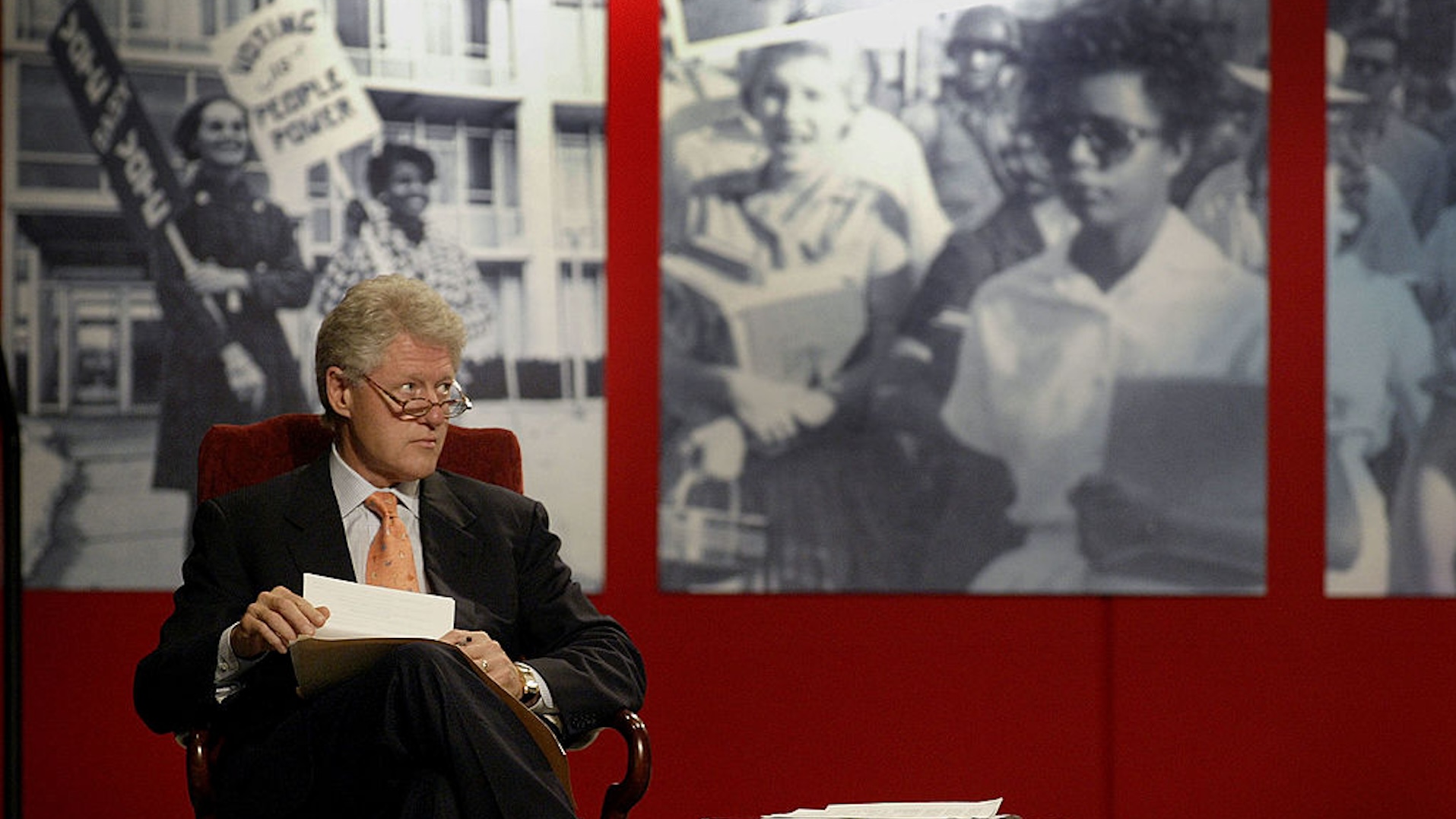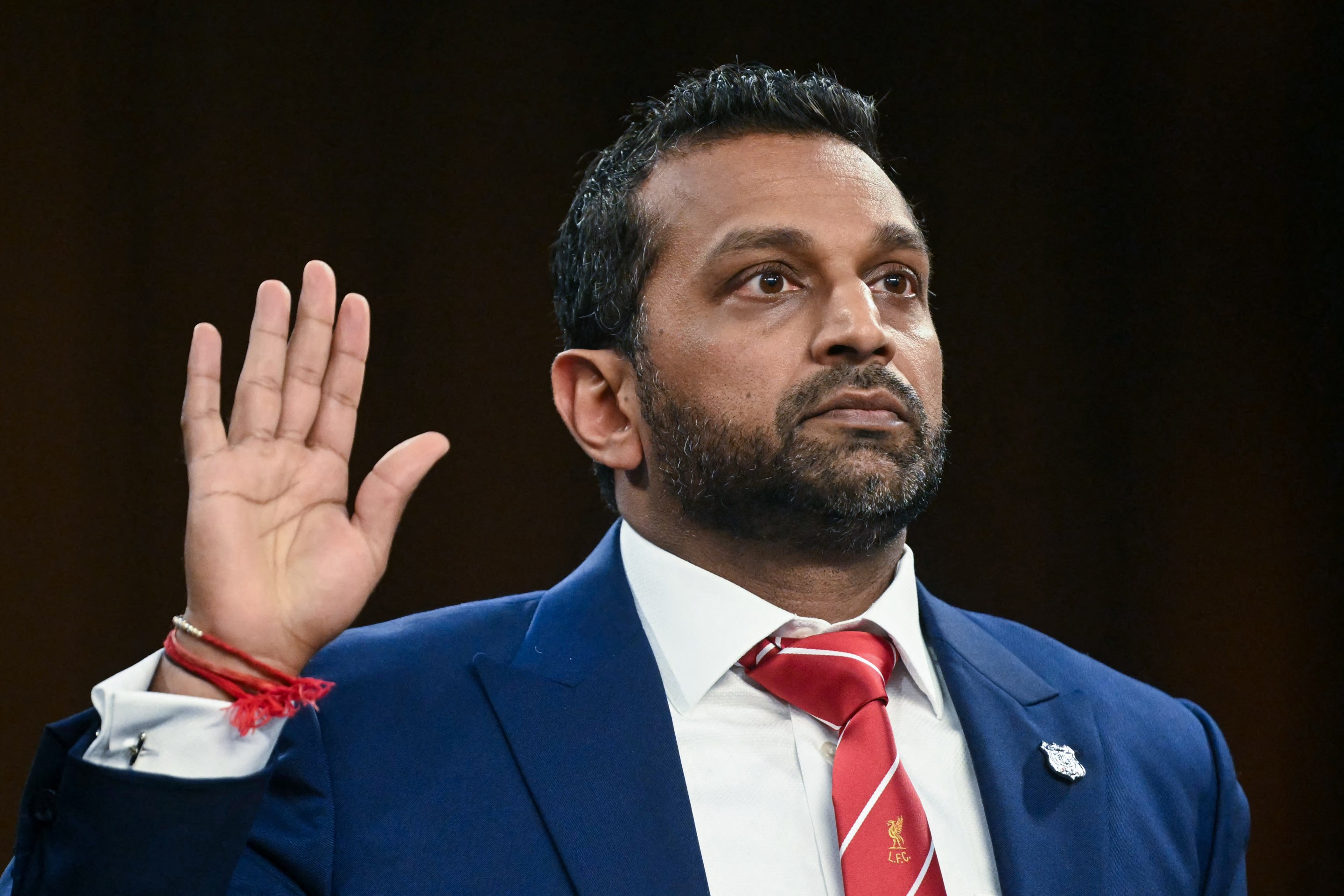Welcome to Margin of Error, a politics column from Tom Scocca, editor of the Indignity newsletter, examining the apocalyptic politics and coverage of Campaign 2024.
To ordinary people watching politics news, this has been another good week for the Kamala Harris presidential campaign. Since Tuesday, when Harris named Minnesota Gov. Tim Walz her running mate, the two have been appearing at packed, enthusiastic rallies. The polls keep moving in her favor; Donald Trump has been invisible save for increasingly cracked and frantic social media posts, leaving his vice presidential pick, J.D. Vance, to trail along awkwardly to the same cities as Harris and Walz, as if bent on demonstrating, head to head, how badly the Republican ticket is faltering.
The Walz pick looked, to untrained eyes, like another clear success for the suddenly sharp Harris operation: a figure who balanced the ticket—a white-haired white guy from the Great Plains via the Upper Midwest, his suits rumpled beside Harris's sleek ones—while obviously, cheerfully harmonizing with the nominee, laughing naturally alongside her onstage, a goofy uncle flown in to join Harris, the wacky aunt, at the holiday table. Among a certain subset of the deeply abnormal people who cover American electoral politics, though, the pick was a mistake, or at least a serious missed chance.
"Ms. Harris passed on an opportunity to use her vice-presidential nomination to redefine herself, even if only marginally, at the beginning of a crucial period for her campaign," the New York Times' chief political analyst, Nate Cohn, wrote. The Washington Post editorial board fretted that "Ms. Harris’ selection of Mr. Walz did not prove that she would resist pressure from the party’s left in the White House, a message she could have sent with a different pick."
What they were talking about, narrowly, was Harris's decision to name Walz instead of Pennsylvania Gov. Josh Shapiro. Shapiro is the popular governor of an essential swing state, but the analysts weren't focused on tactical geography. They were alarmed because "the party's left"—that is, people opposed to the slaughter in Gaza—had objected to Shapiro, on the grounds of his public hostility toward antiwar protests.
Jonathan Weisman—the Times reporter who bounced back from being disciplined for clownishly bigoted tweets and now gets to write about the politics of race and ethnicity—wrote that avoiding conflict over Shapiro "could come at the expense of reassuring the center" and "may well have created a new point of friction with Jewish voters leery of a lurch to the left from the Democratic Party." Weisman couldn't find any actual rank-and-file Jewish voters to complain about Walz, and the story noted that "[m]any Jewish organizations on Tuesday rallied around Ms. Harris’s selection"; nevertheless, the political media had decided that Shapiro was a test for Harris, and she had given them the wrong answer.
The question wasn't even really about Gaza. New York magazine's Jonathan Chait went ahead and made the issue as explicit as possible:
What the selection does...is forfeit her best opportunity to send a message that she is a moderate. She needs to take every possible opportunity between now and November to make up for that. Harris needs to adopt positions that will upset progressive activists. She needs to specifically understand that the likelihood a given action or statement will create complaints on the left is a reason to do something, rather than a reason not to.
With less than 100 days left to keep Donald Trump from retaking the White House, Chait argued, Harris had a duty to "upset progressive activists"—that is, to pick a fight that would antagonize a major bloc of her own supporters. With an overtly fascist movement embedded at the very top of the Republican ticket, the most important job for Democrats was to repudiate the left. This was, by Chait's account, the way to "build a political coalition with a clear majority."
If the logic was lacking, that was because the argument was coming straight from Chait's brain stem—a conditioned reflex, driven by a set of assumptions shared for generations by the Democratic Party, pundits who support the Democrats, and the political reporting press. It was an expression of the belief, treated as a sacred law of politics, that the only way for Democrats to appeal to the kind of real Americans who decide elections is to apologize for being Democrats.
The nadir of Democratic politics, in this model, was George McGovern's loss to Nixon in 1972, driven by the silent majority's disgust with Black Power and longhaired antiwar activists; the peak was Bill Clinton's decision to humiliate Jesse Jackson at the 1992 Rainbow Coalition conference by denouncing the activist and niche rapper Sister Souljah. It is a philosophy of loserdom elevated to principle, a commitment to anticipating how reactionaries might attack and preemptively making those attacks oneself.
In the rattling would-be recriminations over the Walz pick, it was possible to imagine the sound of that mummified consensus finally, belatedly crumbling. The message of the Harris–Walz campaign—which Walz began delivering with natural, folksy energy on TV as soon as Harris took over for Joe Biden—is that the Democrats don't need to defend their candidates and policies to mainstream America, the Republicans do. The Trump movement is built on monstrous people with toxic beliefs and destructive policy goals, and normal human beings are disgusted when they hear about it.
Harris and Walz are running as upbeat, confident candidates, offering to lead the country away from the sour and exhausted era it's been stuck in. They assume that people are going to see them the way they want to be seen: Walz may be a Midwestern dad, a former schoolteacher, and a retired member of the National Guard, but those facts have reached the public not as bullet points strategically deployed to make a case that the Democrats are nominating a regular guy, but as incidental details about someone who's self-evidently a regular guy.
It takes a Republican operative, or someone as twisted by exposure to Republican operatives as Chait, to see Walz as someone who people might see as a sinister figure. Chait wrote:
“Don’t ever shy away from our progressive values,” Walz said on a recent call. “One person’s socialism is another person’s neighborliness.”
I can’t emphasize enough what a bad idea this is. On issues where progressive values are unpopular, and there are several, Democrats should definitely shy away from progressive values. For example, their stance on socialism, which is an extremely unpopular concept, should not be to liken it to neighborliness, but to say it’s bad and promise not to do it.
But Walz wasn't saying Democrats should promote socialism. He was rejecting the premise—the premise that defines Chait's worldview—that if your opponents accuse you of socialism, you have to denounce socialism. He was articulating a whole different approach toward suspicious voters: "They're angry, they're confused, they're frustrated, they feel like they got left behind sometimes. But we can get out there, reach out, make the case."
In Walz's case, that neighborliness agenda includes good and popular programs like free school meals, which Republicans oppose. The Trump campaign, the Times wrote yesterday, wants to attack Harris and Walz as being "out-of-step from most Americans, on everything including policing, immigration and transgender policies." The link on "transgender policies" went to a story about how Republicans are trying to target Walz over a Minnesota law that put free menstrual supplies in school restrooms. While pushing the legislation through, Walz and Minnesota Democrats rejected an effort from trans-baiting Republicans to ban the supplies from boys' bathrooms.
The point of the law was to stock the restrooms. Only the convoluted logic of Trump-era culture warfare made it into a trans issue at all. If the point is to reach voters in the middle, the party that's trying to explain why it's actually bad to give people school lunches or sanitary supplies is the party with a messaging problem. If the goal is to avoid scaring people off, just keep merrily pointing out you're not the ones running Donald Trump and J.D. Vance.
Where, outside the tortured minds of the pundits, is the evidence that the Democrats need to stage public purges to shore up their public standing? The left wing of the party handled the transition from Biden to Harris the way it's handled everything since 2020: with disciplined teamwork in the service of the larger political effort. It's the self-styled reasonable pundits and experts who are addicted to strife.






